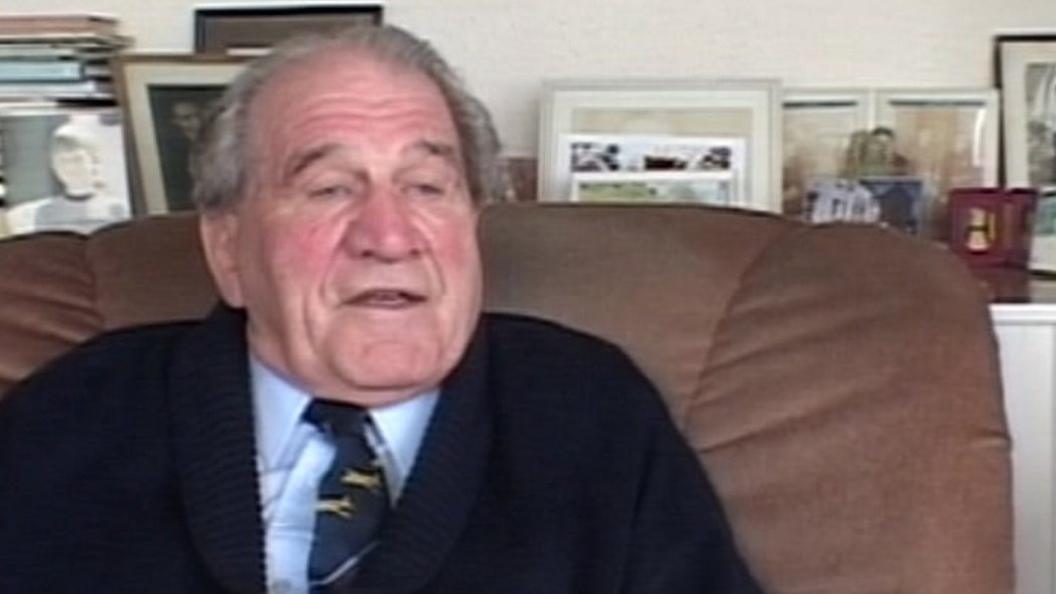VE Day: Coronavirus 'will not stop' Wales honouring fallen
- Published
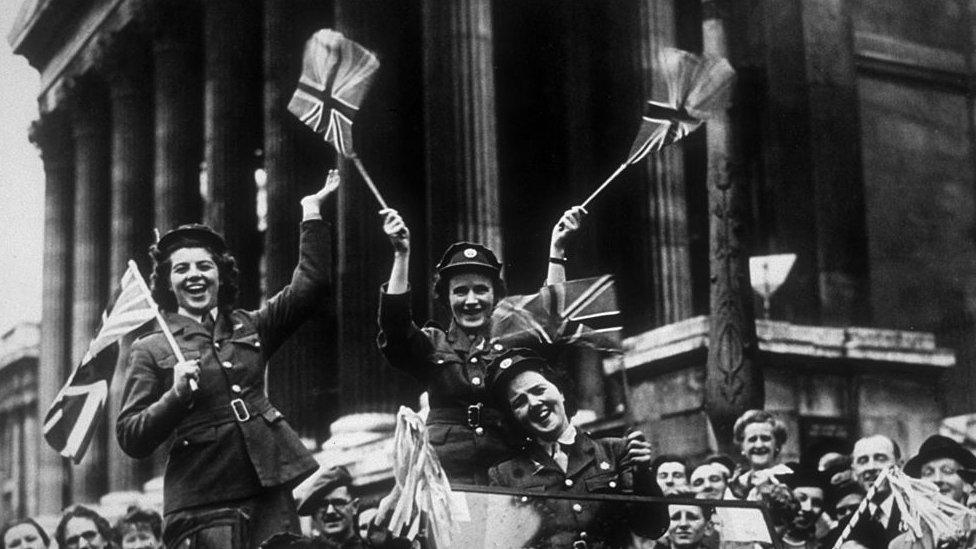
Coronavirus will not stop Wales from paying tribute to the sacrifices of a generation on VE Day, First Minister Mark Drakeford has said.
More than 15,000 Welsh soldiers died during World War Two.
On Friday, the 75th anniversary of the end of the war in Europe, there will be no street parties or public memorial events due to Covid-19 restrictions.
Mr Drakeford said people would still remember and be thankful during "this extraordinary time in our own history".
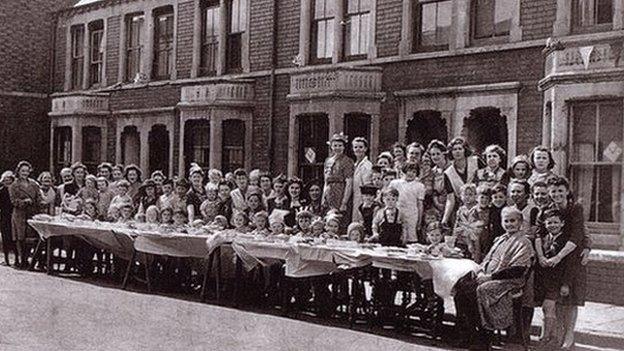
Residents on Warwick Street in Grangetown, Cardiff, celebrated VE Day 75 years ago
The UK government had moved the traditional early May bank holiday from Monday to Friday 8 May to allow celebrations to take place.
But with the social-distancing restrictions, people will be forced to commemorate the historic day at home, instead of attending street parties or services at cenotaphs, war memorials and churches.
A beacon is lit at Cardiff Castle to mark the 70th anniversary of VE Day
Mr Drakeford said while the virus would stop people getting together, it would "not change our determination to pay tribute to a generation which helped to build the foundations of the society we all benefit from today".
"We will say a collective 'diolch yn fawr' (thank you very much) for what that generation did - on the battlefield and on the home front - to help achieve peace in Europe," he said.
"We will decorate our homes, talk to our families and keep their memories alive."
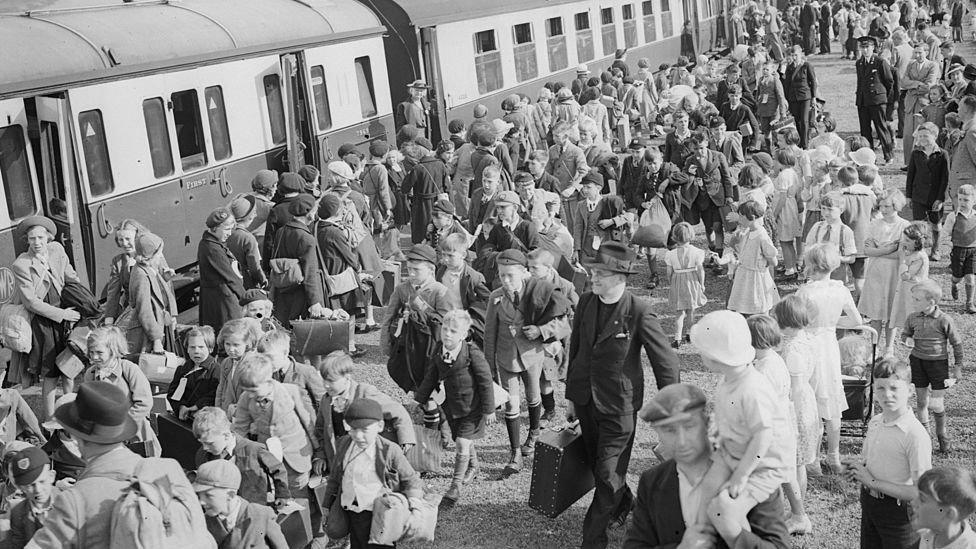
Evacuees arriving at a railway station in South Wales on 3rd June 1940
Mr Drakeford, who will speak to war veterans via a video chat on Friday, said he hoped other people would also talk to those who were there 75 years ago via video link, and "treasure their memories".
"We will celebrate what they did, and remember what it cost them. We will pay tribute to their efforts and we will - as ever - never forget," he said.

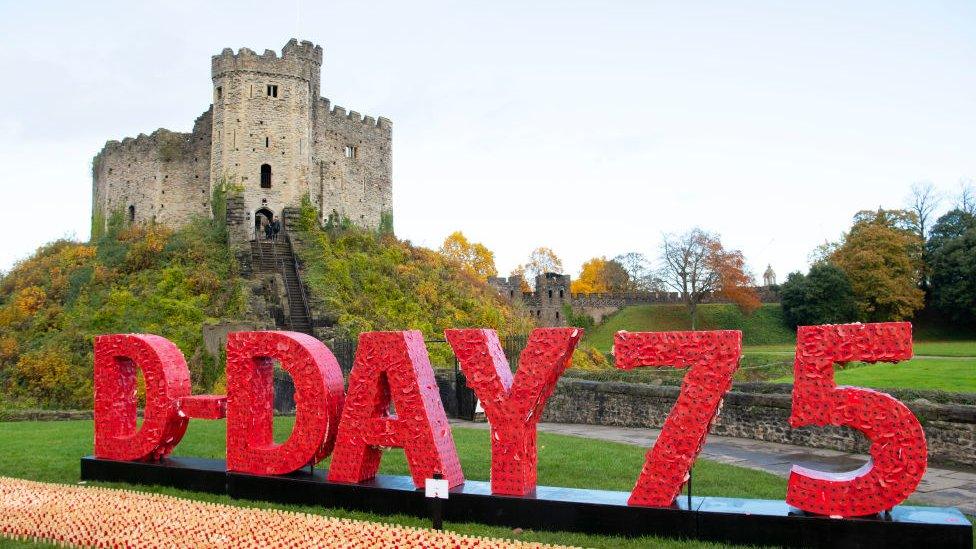
Wales' marked the 75th anniversary of the D-Day landings with a National Field of Remembrance at Cardiff Castle on 7 November 2019
How can you mark VE Day?
Despite social distancing, a number of activities are planned to mark 75 years since VE Day.
At 11:00 BST there will be a nationwide two-minute silence to remember the fallen
At 15:00 BST people will be invited to raise a glass for a toast: "To those who gave so much, we thank you."
At 21:00 BST the Queen will address the nation, on a pre-recorded message broadcast by the BBC, at the exact moment her father King George VI gave a radio address 75 years ago
At 21:00 BST on Friday you can go to your doorstep or window to join in a mass sing-a-long of We'll Meet Again
The official VE Day website, external offers ideas for food, music and activities for parties at home
Family stories can be shared on social media using the hashtags #VEDay75 #DiwrnodVE75

Ken Rees was a farmer before joining up
In an article published in the Wales on Sunday newspaper, the first minister paid tribute to "extraordinary" soldiers, including Flight Lieutenant Ken Rees, who survived the Great Escape.
The Welshman, who died in 2014, aged 93, was the last man pulled from the tunnel he had helped to dig, during the legendary escape of prisoners of war from Stalag Luft III camp in what was then Nazi Germany.
Mr Rees, who was born in Wrexham and spent his final years at Rhosneigr, Anglesey, had been credited as the inspiration for Steve McQueen's character in the Hollywood movie of the escape, although Mr Rees always denied this.

Alan Higgins, in 1944, and recently
Mr Drakeford said stories like that of Alan Higgins, from Bridgend, should also "stay with all of us".
Mr Higgins joined the Royal Navy at just 15, and survived a torpedo attack on his vessel, the treacherous conditions of the Arctic convoys and the D-Day landing.
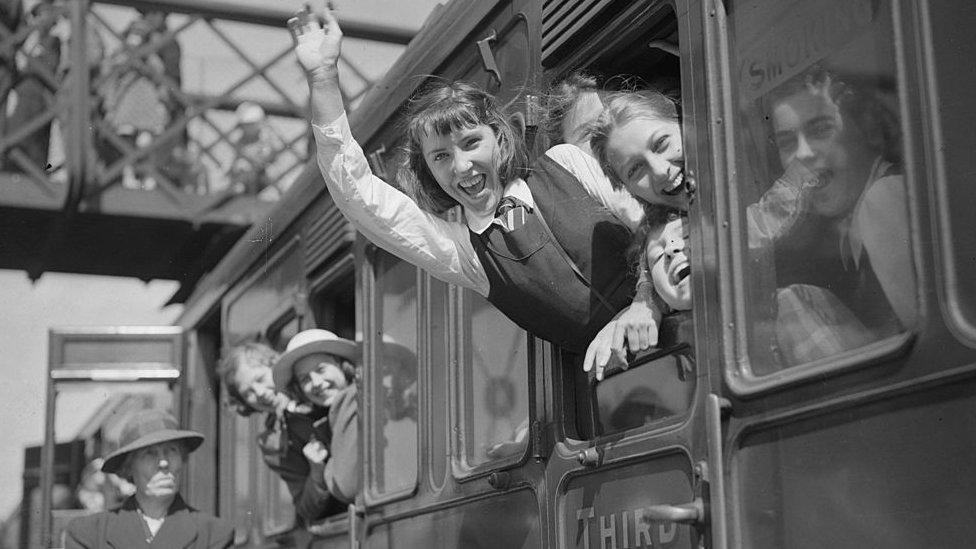
Thousands of school children were evacuated from London to Monmouthshire on 19 May 1940
The first minister also paid tribute to those who fought the "people's war" on the home front; the women who worked in the munitions factories in Hirwaun, Glascoed and Bridgend; and the so-called "Bevin Boys" who kept the pits going when coalminers went off to fight.
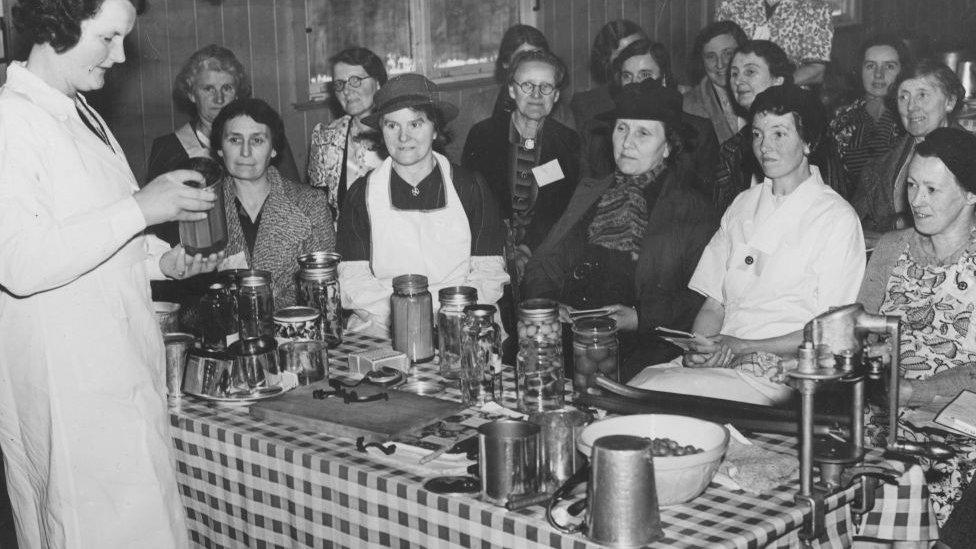
Members of the Women's Institute in Monmouthshire in 1940 learning how to can fruit and vegetables and make jam and jelly
- Published29 April 2020
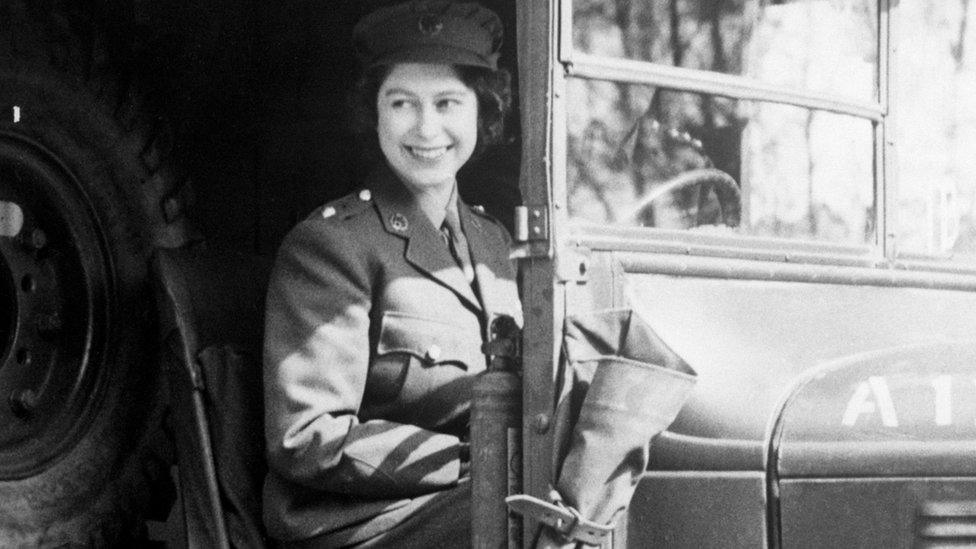
- Published18 April 2020
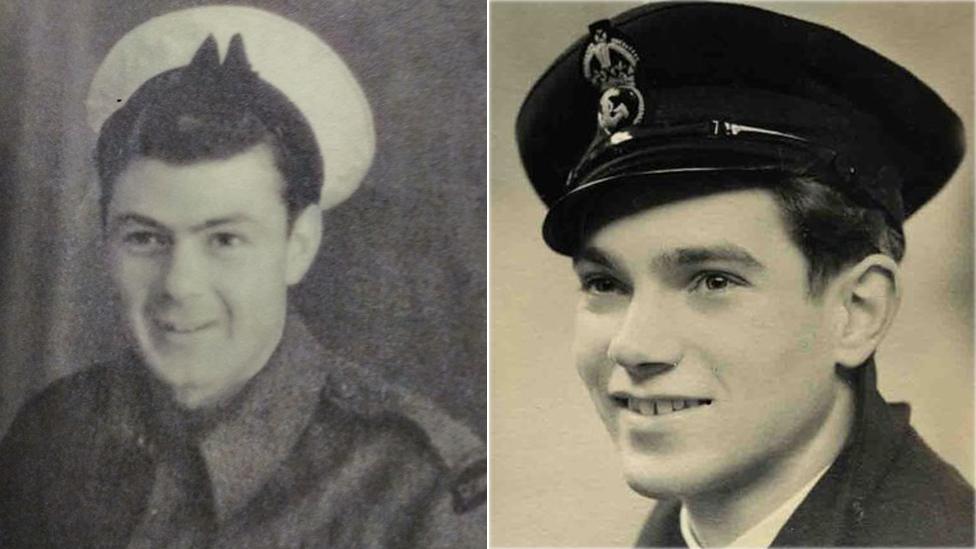
- Published8 May 2015
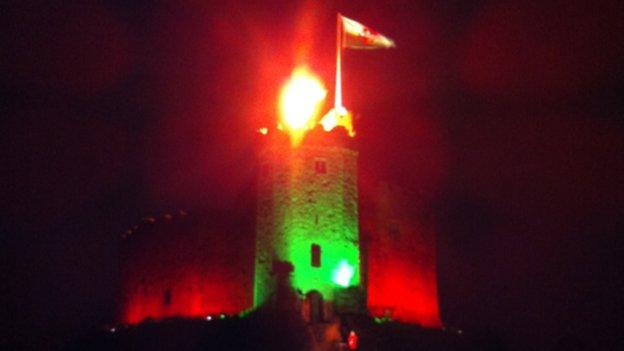
- Published1 September 2014
